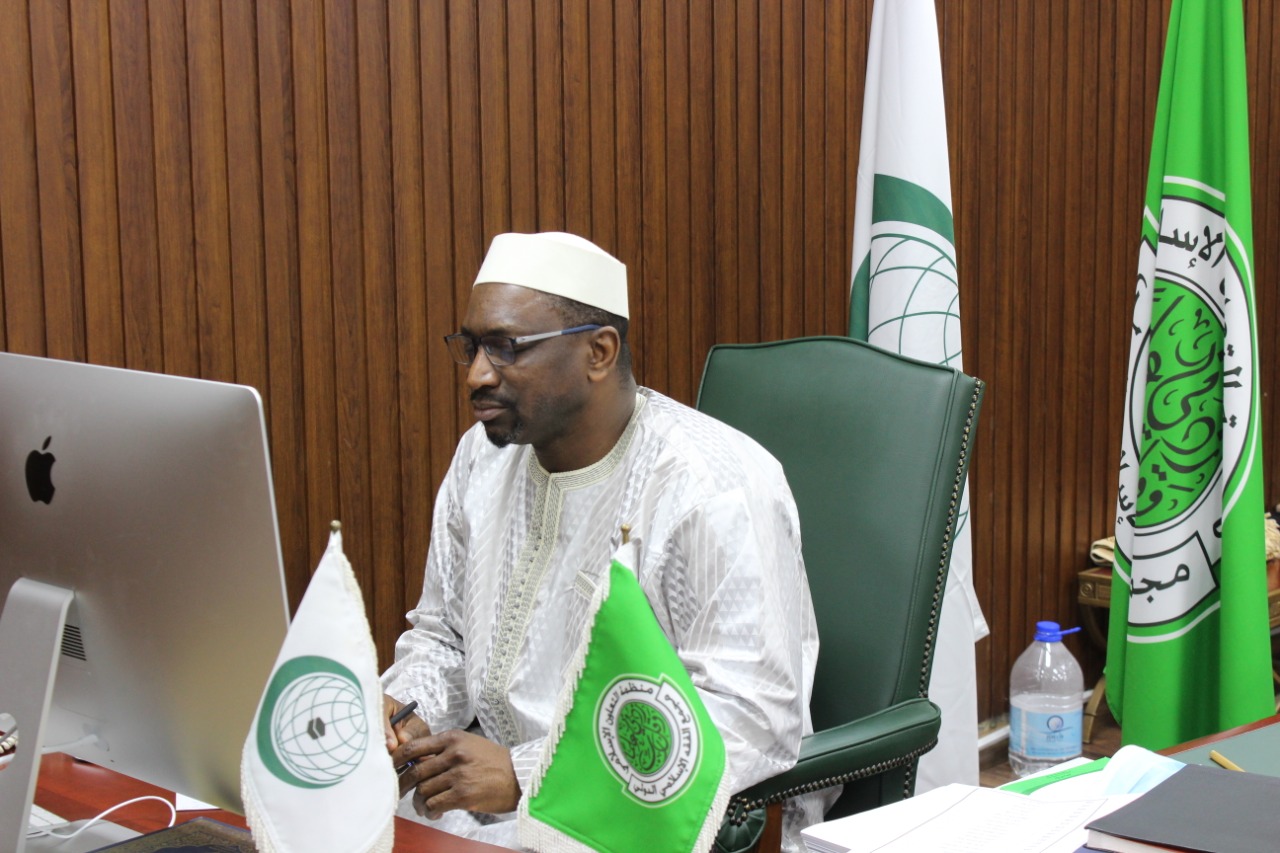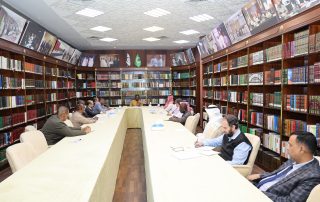
At the generous invitation of the Islamic Economics Institute at King Abdulaziz University in Jeddah to the Wednesday Debate platform, which has been held weekly for more than thirty years, H.E. Prof. Koutoub Sano, Secretary General of the Academy, gave a lecture on the morning of Wednesday 25 Shaban 1442 corresponding to 7 April 2021, on the topic of Wills as a model of Islamic social finance.
His Excellency explained in his lecture the economic and social dimensions in the legislation of wills in Islam, the most important of which is the diversification of the sources of charity and benevolence in addition to Zakat, Awqaf, vows and penances, preserving the objective of the circulation of money, and trade through the empowerment of others; therefore, heirs can obtain a source of funding from the testator within the limits of one third of the money. His Excellency also explained that it is time for researchers and students to pay attention to wills in Islam, showing how to benefit from them in Islamic social finance. His Excellency also confirmed that conducting many studies and research on wills in Islam would lead to the development of laws and regulations that make it a social finance tool no less important than Awqaf and Zakat. Furthermore, there is a need to organize specialized conferences and seminars on wills to study all relevant issues and problems.
His Excellency reiterated his call to researchers and scholars interested in Islamic economics to avoid encircling Islamic economics in Islamic finance and banking, considering that these fields and subjects are not less important than Islamic finance and banking. Therefore, wills are among the most critical subjects of in the economic ambits and issues to be concerned with.
His Excellency pointed out that if it is known that the will is the giving possession to the other, the money attributed after the death by donation, then one of the most important legal purposes of this type of charity is to allow a person to allocate part of his wealth to his brothers, sisters, paternal uncles and aunts, maternal uncles and aunts, who are retained in the inheritance when there are male children of the deceased.
Stressing the importance of the issue of wills, His Excellency also indicated that the funding of churches, private universities and social institutions in the western world comes from testamentary funds, as these institutions have billions of dollars which come from wills, which makes them independent institutions in their thoughts and positions, to cite an eminent example, Harvard University a leading reference, as its funds amount to at least 30 billion US dollars, most of which come from wills. Generally speaking, if endowments or Awqaf are now actively contributing to poverty reduction and social justice, wills should join these stable institutions.
His Excellency concluded his lecture by saying that he wanted, through this conference, to call for paving ways to scientific research in the field of Islamic economics, and that he hopes that a day will soon come when we will be happy with the presence of the institution of wills alongside the institutions of Awqaf and Zakat, or even the establishment of institutions for atonement and vows, as these institutions represent living models of social financing in Islam.
At the end of the conference, His Excellency answered questions from the participants and thanked the Institute for inviting him at this prestigious forum, the Wednesday Debate.
Read Also
Lastest








